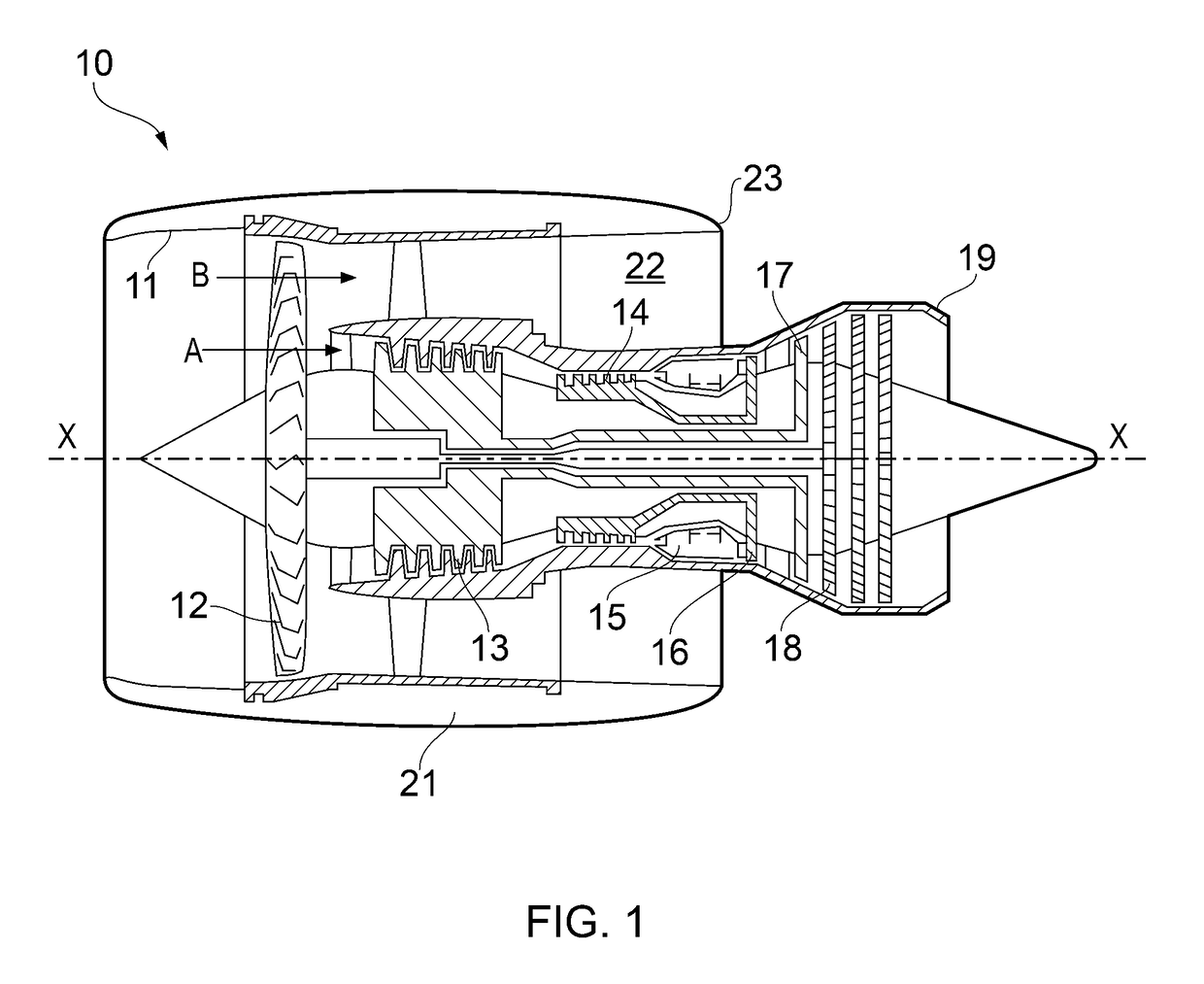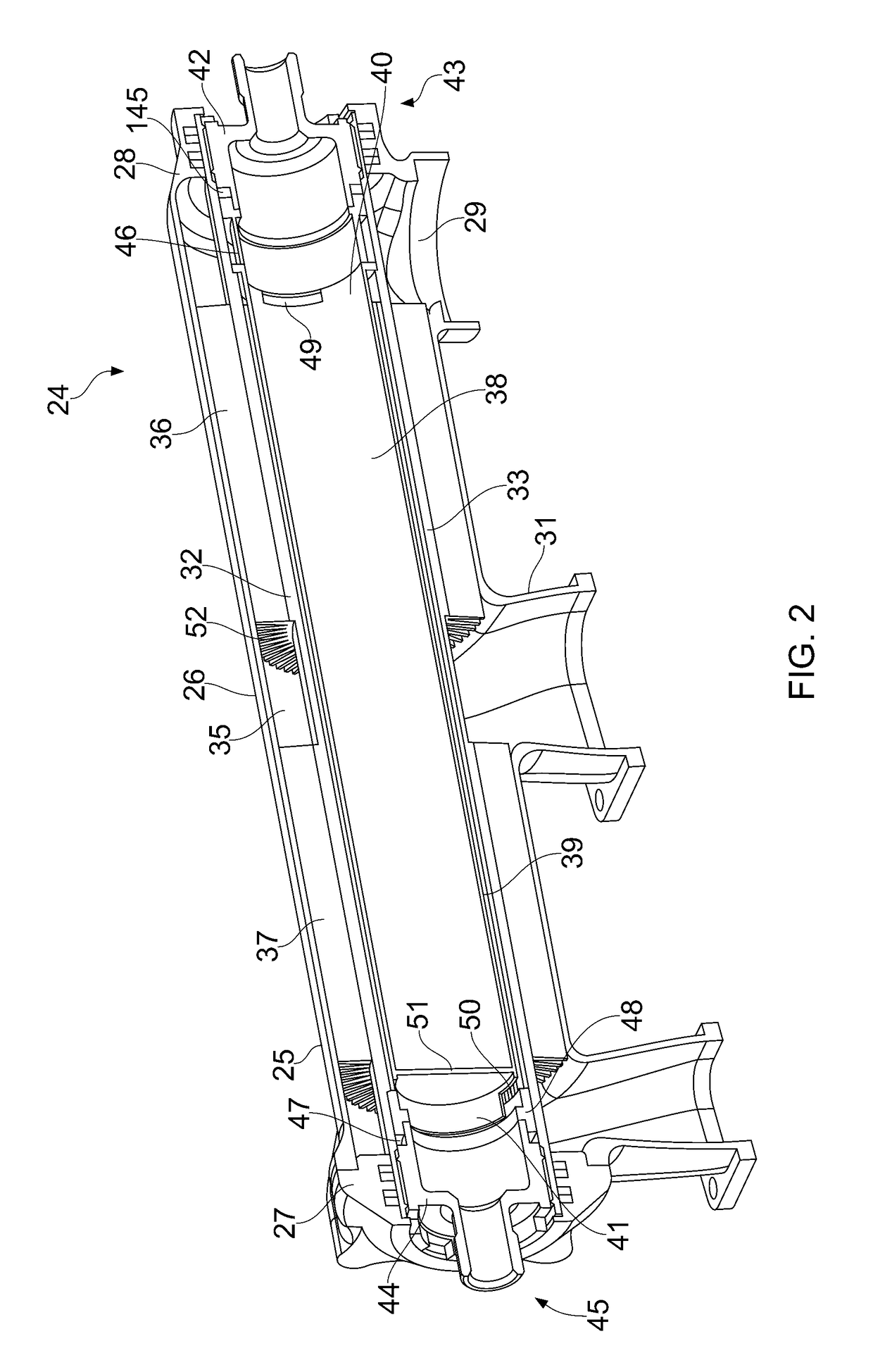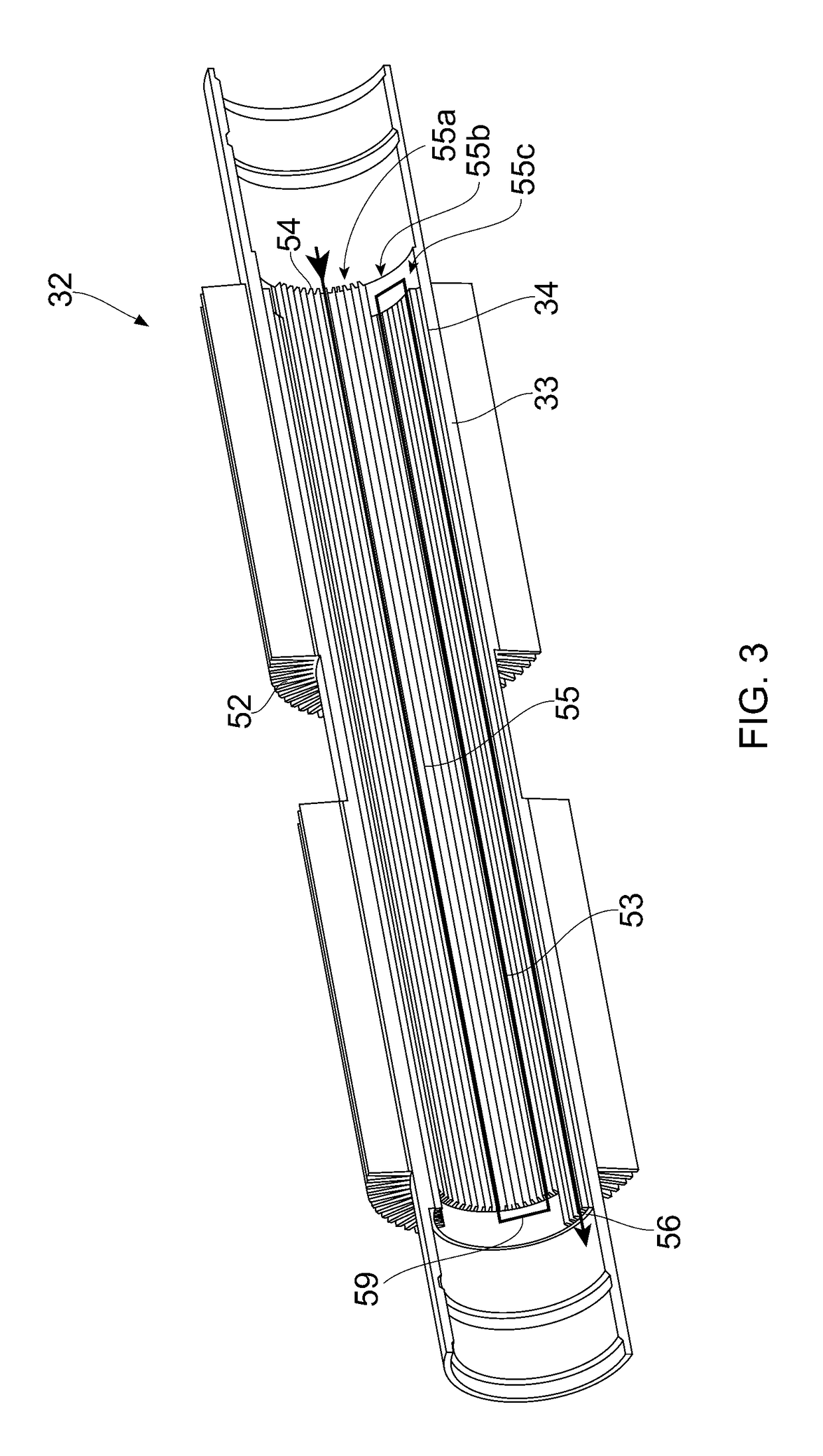Heat exchanger having a coaxial or concentric tube construction
a technology of coaxial or concentric tubes and heat exchangers, which is applied in the field of heat exchangers, can solve the problems of fluid leakage into the surrounding atmosphere, and achieve the effect of increasing the amount of tim
- Summary
- Abstract
- Description
- Claims
- Application Information
AI Technical Summary
Benefits of technology
Problems solved by technology
Method used
Image
Examples
first embodiment
[0090]In the first embodiment, the second annular passage 39 is divided by axially extending, circumferentially spaced radial inner fins 53. The inner fins 53 are integral with the inner surface 34 of the tubular element 32 and are formed by machining the inner surface 34 of the tubular element 32 by electro-discharge wire cutting.
[0091]The inner fins 53 divide the second annular passage 39 / second fluid flow path into a series of axially aligned channels extending from the first axial end 40 of the inner sleeve 38 to the second axial end 41 of the inner sleeve 38.
[0092]The axially extending, circumferentially spaced radial inner fins 53 are adapted to divide the second annular passage into a plurality of convoluted channels 59. Each convoluted channel 59 has an inlet 54 at the first axial end 40 of the inner sleeve 32, a series of axially aligned portions 55a, 55b, 55c with adjacent axially aligned portions being interconnected proximal the axial ends 40, 41 of the inner sleeve 32 a...
second embodiment
[0097]the present invention is shown in FIGS. 4 and 5. Many features are common between the two embodiments shown and the same reference numerals are used where appropriate.
[0098]In this embodiment, the inner surface 34 of the tubular element 32 comprises integral spirally / helically extending, circumferentially spaced radial inner fins 57 which formed into the inner surface 34 using thread milling. These inner fins 57 divide the second annular passage 39 into a series of aligned spiral / helical channels extending from the first axial end 40 of the inner sleeve 38 to the second axial end 41 of the inner sleeve 38.
[0099]The second axial end 41 of the inner sleeve 38 comprises a series of circular apertures 58 which provide fluid communication between the second annular passage 39 and the outlet adapter 44 (via the bore of the inner sleeve 38). At the first axial end 40 of the inner sleeve 38, a cut-out 49 is provided to allow fuel to enter the second annular passage.
[0100]Fuel entering...
PUM
 Login to View More
Login to View More Abstract
Description
Claims
Application Information
 Login to View More
Login to View More - R&D
- Intellectual Property
- Life Sciences
- Materials
- Tech Scout
- Unparalleled Data Quality
- Higher Quality Content
- 60% Fewer Hallucinations
Browse by: Latest US Patents, China's latest patents, Technical Efficacy Thesaurus, Application Domain, Technology Topic, Popular Technical Reports.
© 2025 PatSnap. All rights reserved.Legal|Privacy policy|Modern Slavery Act Transparency Statement|Sitemap|About US| Contact US: help@patsnap.com



